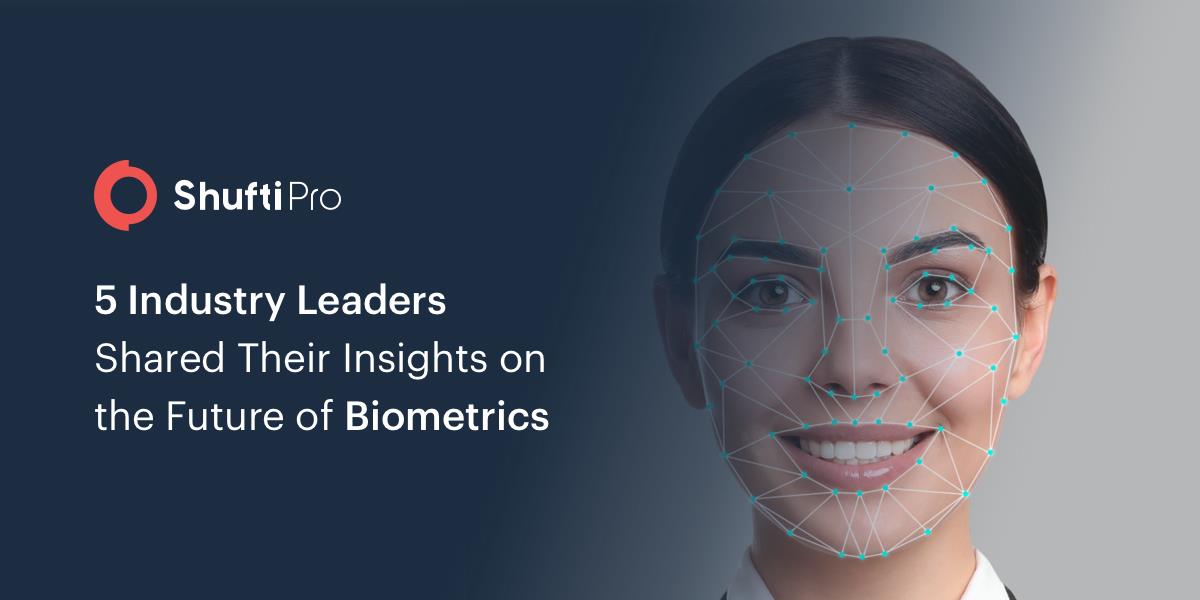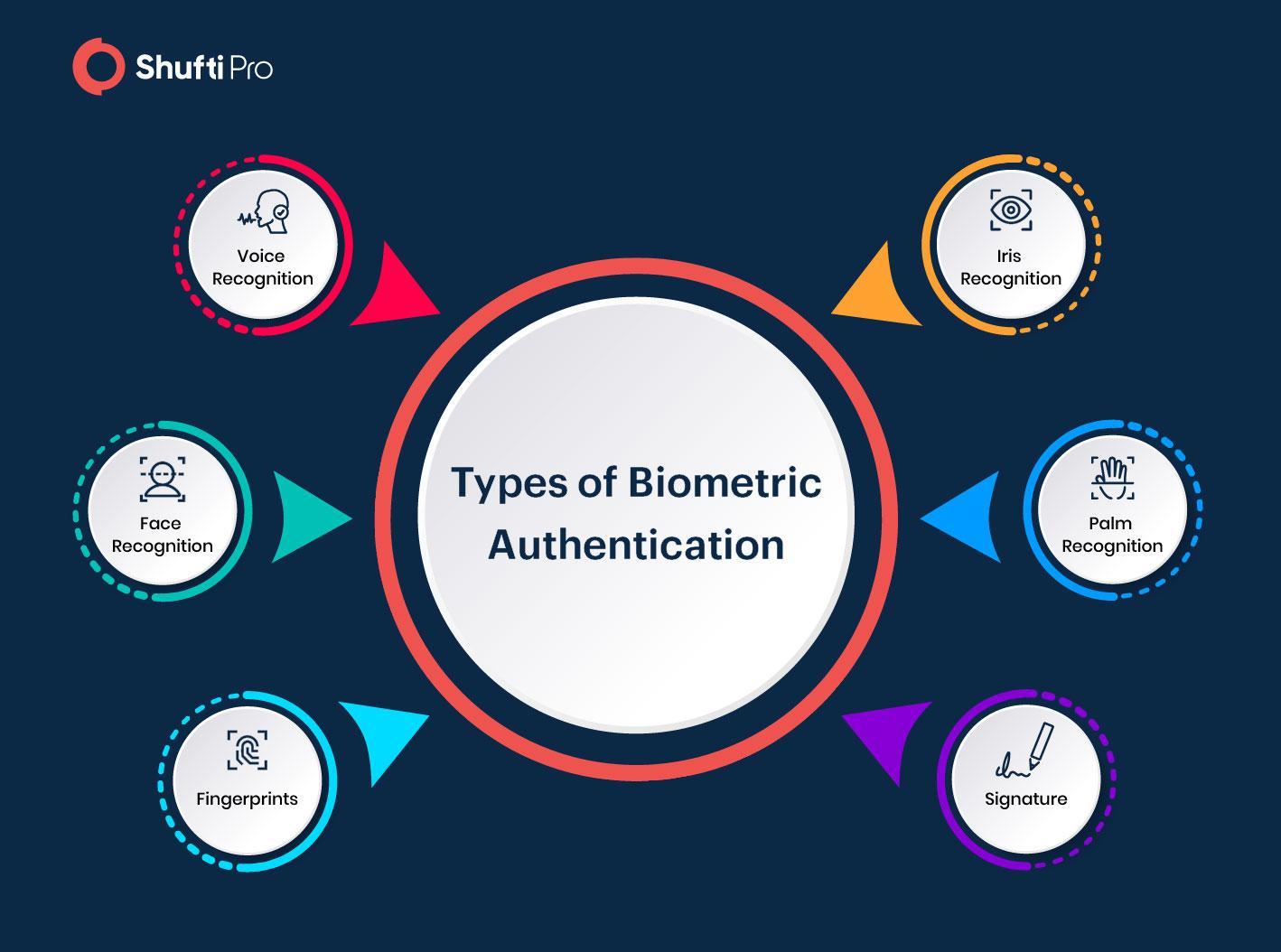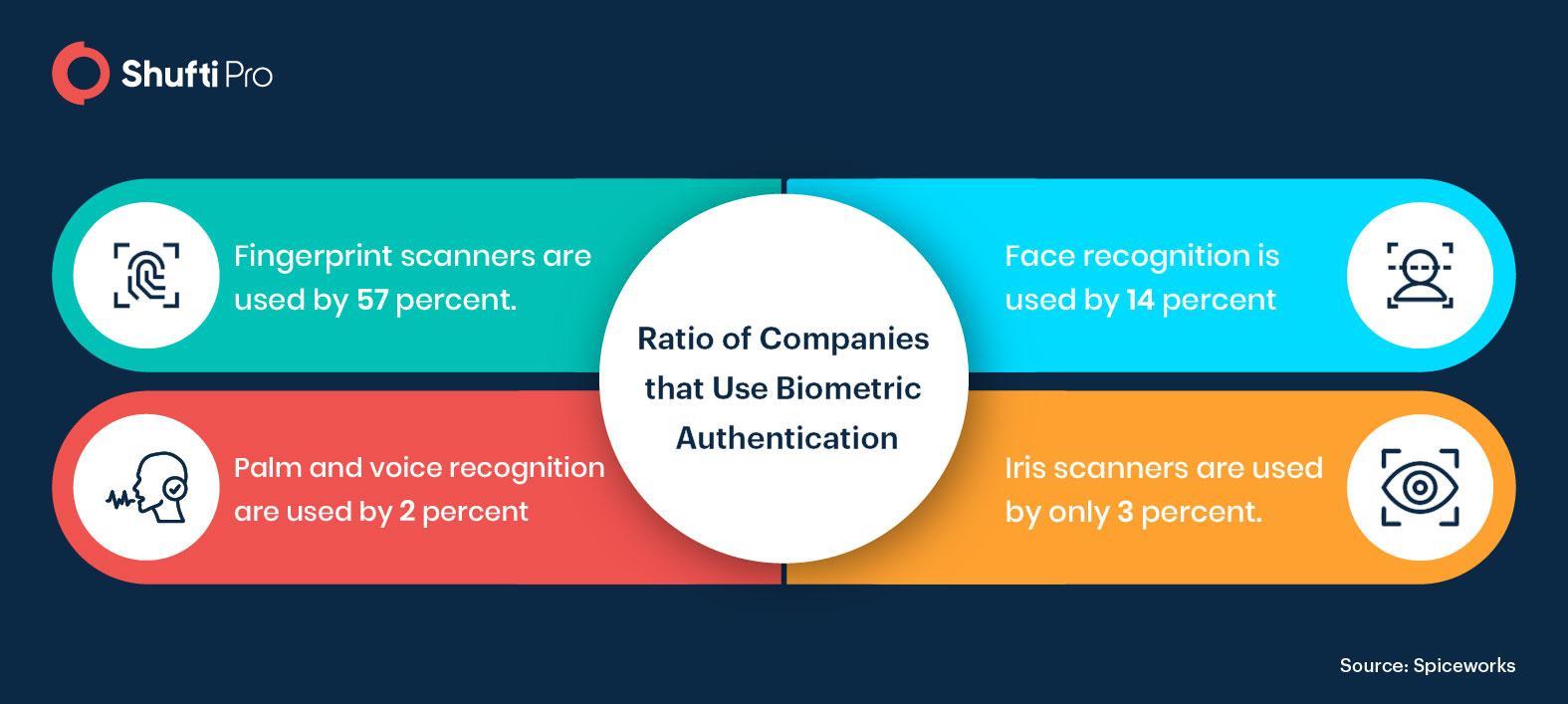5 Industry Leaders Shared Their Insights on the Future of Biometrics

Modern technology has brought several conveniences to life. From the ease of working at home to streamlining organisational benefits, the benefits of technology are hard to count. In the 1800s, the first biometric system for identification was introduced. Today, it is one of the best ways of verifying the identities of people. Government agencies are using it for maintaining records of all the residents, whereas businesses are using it as an employee attendance mechanism and security protocol. With time, biometric authentication has emerged as a powerful tool for security and fraud prevention as Artificial Intelligence has enhanced its efficacy.
According to a research, the biometric software and identification market will reach a value of USD 62,850 million by the end of 2026 which is currently USD 30,510 million (in 2020). The CAGR (Compound Average Growth Rate) is expected to be 12.8 percent between 2021 and 2026. Biometric authentication is not restricted to fingerprints only. It entails a lot more than that. We contacted some experts to know their thoughts on the future of biometrics. . Few of the responses have been added in this blog that might interest you.
What is Biometric Authentication?
Biometric authentication is an automated method of verifying individuals on the basis of their behavioral, biological, and physiological traits. Common methods of biometric verification include fingerprints, iris, retina, palm, face, walking style (gait), signature, voice, and DNA matching. It is widely used in the e-commerce, finance sector, and government sector for verification.

Types of Biometric Authentication
As mentioned earlier, there are various types of biometric verification that can be used for different purposes. Here are some of the types that are commonly used in different sectors along with a few benefits.
Palm Recognition
Palm recognition verifies the geometry of the hand of an individual. This is one of the fastest ways of biometric authentication and ideal for businesses that have tons of customers stopping by every day. Touchless kiosks at the airport are a classic example of palm recognition. Just like fingerprints, arrangement of veins in palms is different in every person. Verification through palm at the airports is a great way of dealing with identity thieves and human traffickers. It also improves passenger authentication procedures by verifying passengers without any assistance from airport security staff.
Face Verification
This type of biometric verification verifies the face of individuals using artificial intelligence models. Liveness detection, 3D mapping, depth analysis, and skin texture analysis are some of the techniques used for face recognition. During identity verification, the end-user provides government-issued ID documents and a selfie for verification. Face in the selfie is checked with 3D depth mapping and liveness detection techniques to ensure the presence of an actual human being on the other side of the screen. Also it is matched with the image on the document to authenticate the identity of the end-user.
Fingerprint Verification
The traditional fingerprint verification is still used in different regions of the world. Globally, this type of biometric authentication is used by 57 per cent of the companies. You can now easily find a fingerprint scanner in smartphones. Businesses consider it as a robust measure for verification and ideal for detecting live presence of the person. Although the COVID-19 pandemic has changed the game and people are reluctant to use these machines for biometric verification. This shift in demand has contributed to the growth of other types of biometric technologies, especially face recognition.

Industry Leaders’ Insights About Biometric Authentication
From journalists to C-suite individuals from different sectors, everybody trusts biometric authentication for verification. We received varying perceptions of professionals of different sectors. A few responses that might help you peep into the future of biometrics are included in this blog.
Added Security to Monitor Employee Activity
Financial Journalist of LetMeBank, Emily Deaton said,
“As a journalist, in my opinion, biometric authentication helps a business by providing added security. A number of firms are putting biometric verification to add an added layer of security to both digital and physical records. For example, someone may be asked to use a thumbprint scanner prior to logging in to a computer giving them passage to sensitive medical or financial records. Facial recognition systems may monitor where employees go and relate this to badge access records. These systems may recognize when person A is in the bathroom but their badge is used to enter a server room. Or it may notice when somebody has left the building but their badge has been utilized to open a storeroom or laptop in the building.”
Undoubtedly, biometric authentication adds an extra layer of security and you can keep an eye on the employees. It can help you control the number of internal incidents. Moreover, confidential information should not be accessible for anyone who enters the company. With the help of face or fingerprint verification, you can ensure security of the information.
Read more: Banking on Biometrics: The Future of Customer Authentication
Fraud Prevention in the Gaming Sector
We also received a response from the gaming sector and Catherine from ASAA88, an online gaming platform, says,
“Well, utilising biometric authentication can help prevent fraud in the online gaming business. Biometric verification like fingerprint recognition helps identify fraudsters easily. Also, it helps protect the audience against scams that involve duplicate ads to obtain fees. We are looking forward to cost-effective biometric authentication technologies like face recognition so that we can secure the privacy of our audience and save them from scams and frauds in a better way.”
Frauds are increasing and this pandemic has fanned the flame. There has been a significant rise in criminal activities and the gaming sector is the target for identity theft and other frauds. Apart from identity fraud, online gaming is one of the best places to layer illegally earned money. Biometric authentication is already helping this sector, but in the future, this measure can help in identifying criminals within seconds and secure other players of the platform.
Biometric Verification for Secure Digital Payments
The CEO of VSS Monitoring, Dusan Stanar, believes that biometric authentication can be used in many other areas. It’s not just about making digital payment convenient, but it is also about easing other procedures like employee verification in companies. Let’s take a look at what Dusan has to say.
“As the CEO of a company, in my opinion, the best way biometric authentication helps a business is by providing speed up payment processing. The pure simplicity along with speed describes why a growing number of people across the world are paying for lunch with a thumbprint. Similar technology can be used to let employees pay for items in a company store. You are simply following the same pattern set for digital payments frequently used by customers. This is apart from the initial trials trying to substitute pin numbers with facial scans.”
Thoughts of Victor Fredung, CEO of Shufti
Shufti is providing state of the art face verification and biometric authentication services. Victor Fredung, the CEO of Shufti, shared his thoughts on the future of biometric authentication and said,
“Biometric authentication is one of the ideal ways of knowing your customers during the onboarding process. With the help of face verification, it gets a lot easier to combat spoof attacks and deep fakes. As far as the future is concerned, the market is booming and with the rise in fraudulent attempts to exploit businesses, it is not wrong to say that biometric authentication will be the foundation of fraud prevention.”
Summing it Up
Biometric authentication is one of the ideal ways of dealing with fraudsters. It gives organisations an edge over criminals, because different types of biometrics make fraud detection and prevention easier. With the booming market, the future of biometric authentication is full of more automation and robustness for businesses. Since fraudster attempts are becoming more sophisticated, this technology will experience more advancements to ensure efficacy of the identity verification procedure. Different types of biometrics will be used for identification with an increased use of this technology for other purposes as well.
Want to know about Shufti’s biometric authentication? Get in touch with our experts.

 Explore Now
Explore Now













